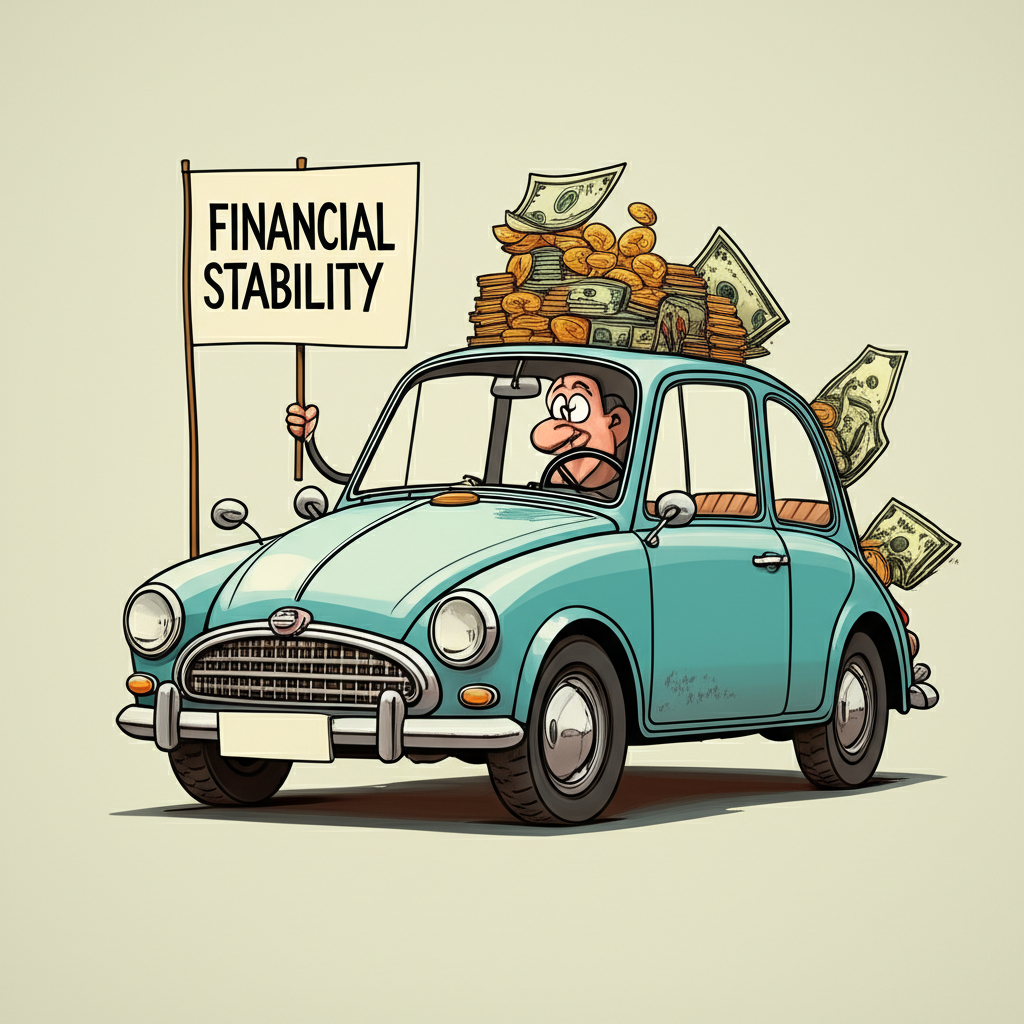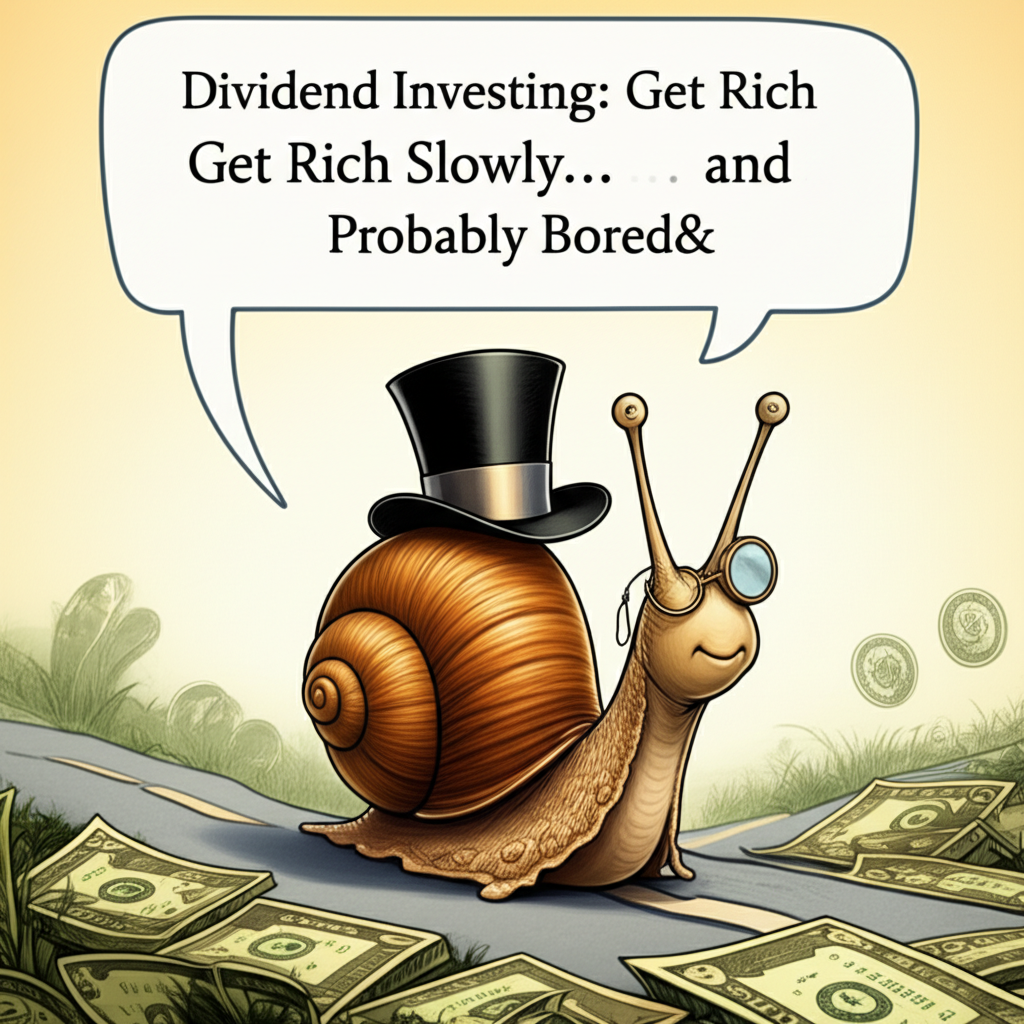
The Financial Follies: A Humorous Guide to Modern Stability (or Lack Thereof)
Article 1: The Emergency Fund – Are You Using Yours for ‘Emergencies’ or Just Really Good Brunches?
Ah, the Emergency Fund. That mythical beast whispered about by financial gurus in hushed, reverent tones. It’s supposed to be your financial fortress, your impenetrable shield against life’s unexpected curveballs. But let’s be honest, in the thrilling roller coaster of modern existence, defining an "emergency" has become a nuanced, highly personalized art form.
Originally, the emergency fund was for things like sudden job loss, unexpected medical bills, or a car spontaneously combusting (a rare but valid concern). Now, the definition has expanded to include "opportunity emergencies" – like that last-minute flight deal to Bali, because when else will you get a chance like this? Or "emotional support emergencies" – manifesting as a spontaneous luxury handbag purchase after a particularly grueling Monday. Because self-care, darling, is not just a trend; it’s a financial necessity.
Many of us bravely attempt to build this sacred reserve. We dutifully set up automated transfers, envisioning a pristine, untouched pile of cash. But then life happens. And by "life," we mean:
- The "Friend’s Birthday Extravaganza" Emergency: Your bestie decided a weekend in Vegas was essential for their 30th. Can you really be the one to say no? Your presence is, after all, invaluable. And also, expensive.
- The "Inflation-Made-My-Groceries-Cost-a-Kidney" Emergency: Suddenly, your weekly shop is an exercise in existential dread. That emergency fund might just need to cover the organic kale and artisanal sourdough you now need to survive.
- The "Unexpected Pet Incident" Emergency: Your cat, Bartholomew, decided that a designer sofa was, in fact, an oversized scratching post. The vet bill for his resulting fur-ball-induced existential crisis was surprisingly reasonable compared to the cost of reupholstering.
- The "FOMO-Induced Market Dip" Emergency: Everyone on Reddit is saying now is the time to buy that obscure meme stock. If you don’t jump in, you’ll miss out on being a millionaire by Tuesday! Clearly, this requires immediate access to liquid funds.
Expert Advice (Satirical Edition): To truly master your emergency fund, redefine "emergency" to suit your lifestyle. Is your favorite boutique having a flash sale? Emergency! Did you just realize your existing phone is two models old? Emergency! Is your social media feed making you feel inadequate? Financial therapy (aka retail therapy) emergency!
In conclusion, while the traditional emergency fund concept has its merits, in today’s dynamic world, it’s really more of a "Flexible Life Opportunity & Mental Wellness Buffer." So go forth, be financially stable, and remember: if it feels urgent and involves money, it’s probably an emergency. Just don’t tell your financial advisor. They simply wouldn’t understand.
Article 2: The FOMO Economy: Why Your Neighbors’ Shiny New Gadget Is Your Best Financial Advisor
Forget market analysts, economic forecasts, or the sage wisdom of your financially prudent aunt. In the glorious, terrifying landscape of the 21st century, your most influential financial advisor lives right next door, or more accurately, on your social media feed. Welcome to the Fear Of Missing Out (FOMO) Economy, where your financial stability is directly proportional to how successfully you can keep up with the imaginary Joneses.
It starts subtly. A friend posts a picture from a chic new restaurant – "Oh, I must try that!" you think, immediately budgeting (or rather, un-budgeting) for a reservation. Then it escalates. A colleague shows off their brand-new, impossibly sleek electric vehicle. Suddenly, your perfectly functional car feels like a horse-drawn buggy. Your savings account, once a source of quiet pride, now looks woefully inadequate compared to the down payment required for such a status symbol.
The FOMO Economy thrives on a simple principle: if everyone else has it, you need it. And if you don’t, you’re not just behind, you’re practically a Luddite living in a cave, subsisting on ramen and regret. This isn’t about practical needs; it’s about the emotional cost of being the last one to jump on the bandwagon.
Common FOMO-Driven Financial "Strategies":
- The "Crypto Millionaire Next Door" Investment Plan: Your neighbor, who barely understands how a toaster works, just bought a yacht thanks to a coin named after a dog. Clearly, your diversified portfolio of boring index funds is a colossal failure. Time to liquidate everything and go all-in on the next meme-stock sensation. What could possibly go wrong?
- The "Influencer-Approved Lifestyle Upgrade": That minimalist influencer with the perfect apartment and artisanal coffee? You, too, can achieve such serenity… if only you buy that $500 smart kettle and replace all your furniture with ethically sourced, aesthetically pleasing (and wildly expensive) pieces. Your credit card is merely a tool for self-improvement.
- The "Experience Economy Debt Spiral": Everyone is globetrotting, attending exclusive festivals, and taking pottery classes in Tuscany. If you’re not documenting your latest "adventure" on Instagram, did it even happen? And more importantly, are you even living? Saving for a down payment suddenly feels terribly un-bohemian.
Expert Advice (Satirical Edition): To achieve true financial stability in the FOMO Economy, embrace the chaos! View every new trend as an investment opportunity (in your social standing, if not your actual wealth). Your credit score is just a high score in the game of "who can spend the most without their bank flagging them." And remember, the best financial advice always comes from someone who’s just purchased something you secretly desire. After all, if they can afford it, so can you! (Probably.)
Article 3: Budgeting: The Art of Financially Gaslighting Yourself (and Your Bank Account)
Ah, budgeting. The financial equivalent of a New Year’s resolution that dies a tragic death by January 7th. It’s lauded as the cornerstone of financial stability, a meticulous map to your monetary promised land. But for most of us, it’s less of a map and more of a deeply personal, emotionally charged, and ultimately futile wrestling match with our own spending habits.
The budgeting process typically begins with an optimistic flourish. You download a fancy app, meticulously categorize every past expense, and declare, "This month, I shall be a lean, mean, spending machine!" You allocate funds for "Groceries," "Utilities," and a tiny, almost apologetic sliver for "Discretionary Spending." You feel powerful. You feel in control.
Then reality hits. And reality, it turns out, is a relentless saboteur.
- The "Just This Once" Loop: You planned to eat at home, but Sarah from accounting suggested happy hour. "It’s just this once!" you tell your budget. Three happy hours later, your "Dining Out" category is weeping openly.
- The "Unexpected Essential Purchase" Mirage: Your existing socks are perfectly fine, but then you see those limited-edition, ethically sourced, bamboo-blend socks. They’re an investment in foot comfort and planetary well-being! Suddenly, your "Clothing" budget has spontaneously combusted.
- The "Subscription Service Creep": You signed up for one streaming service. Then another. Then a meditation app. A gourmet coffee club. A monthly box of artisanal dog treats (for the dog you don’t even have yet). Each one is only $9.99! Individually, they’re negligible. Collectively, they’re the financial equivalent of a thousand tiny paper cuts.
- The "Treat Yourself" Paradox: You’ve been so good! You’ve avoided that daily latte, packed your lunch, and even walked to work. Surely, you deserve a reward. A really, really expensive reward that obliterates all your hard-won savings. Because self-care.
Expert Advice (Satirical Edition): The key to successful budgeting is to develop an advanced form of financial gaslighting. Your budget isn’t a strict set of rules; it’s a suggestion. When you overspend, simply rename the category! "Eating Out" becomes "Culinary Research & Development." "Impulse Shopping" transforms into "Economic Stimulus & Retail Therapy."
For true mastery, don’t even look at your budget for the last week of the month. Ignorance, after all, is bliss, especially when it comes to the gaping chasm between your projections and your actual expenditures. Just tell yourself it all balanced out in the end. It’s a journey, not a destination, and sometimes the journey involves a few detours through the designer handbag aisle. Your bank account will eventually forgive you. Probably.


Post Comment